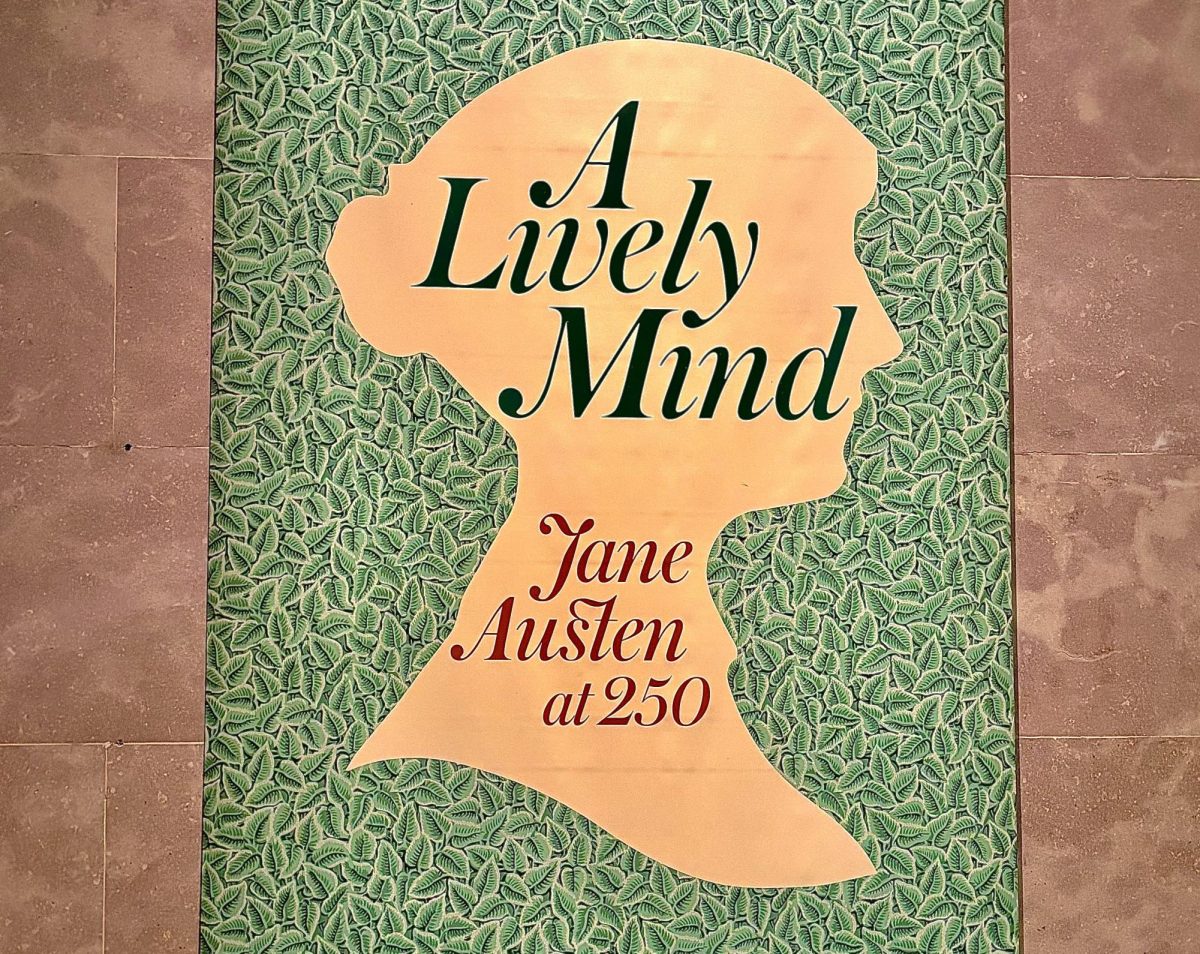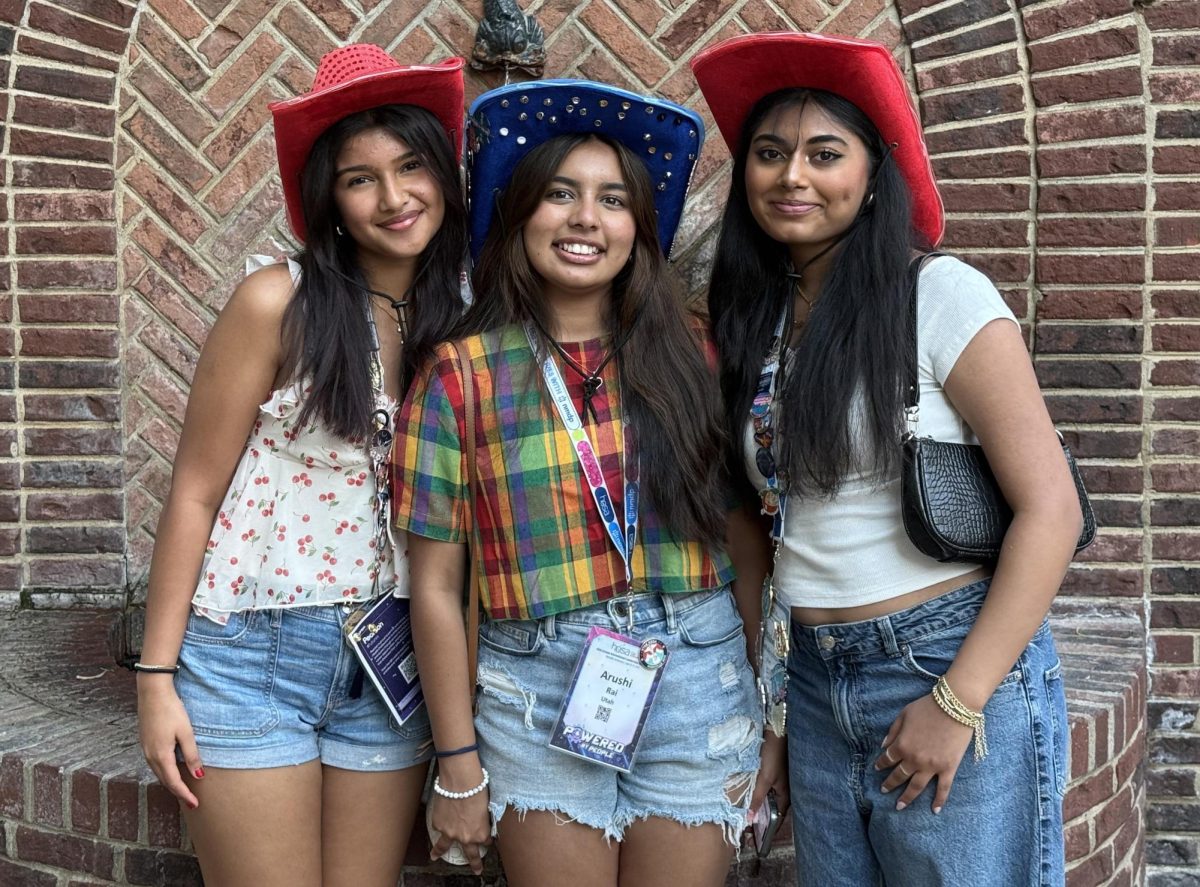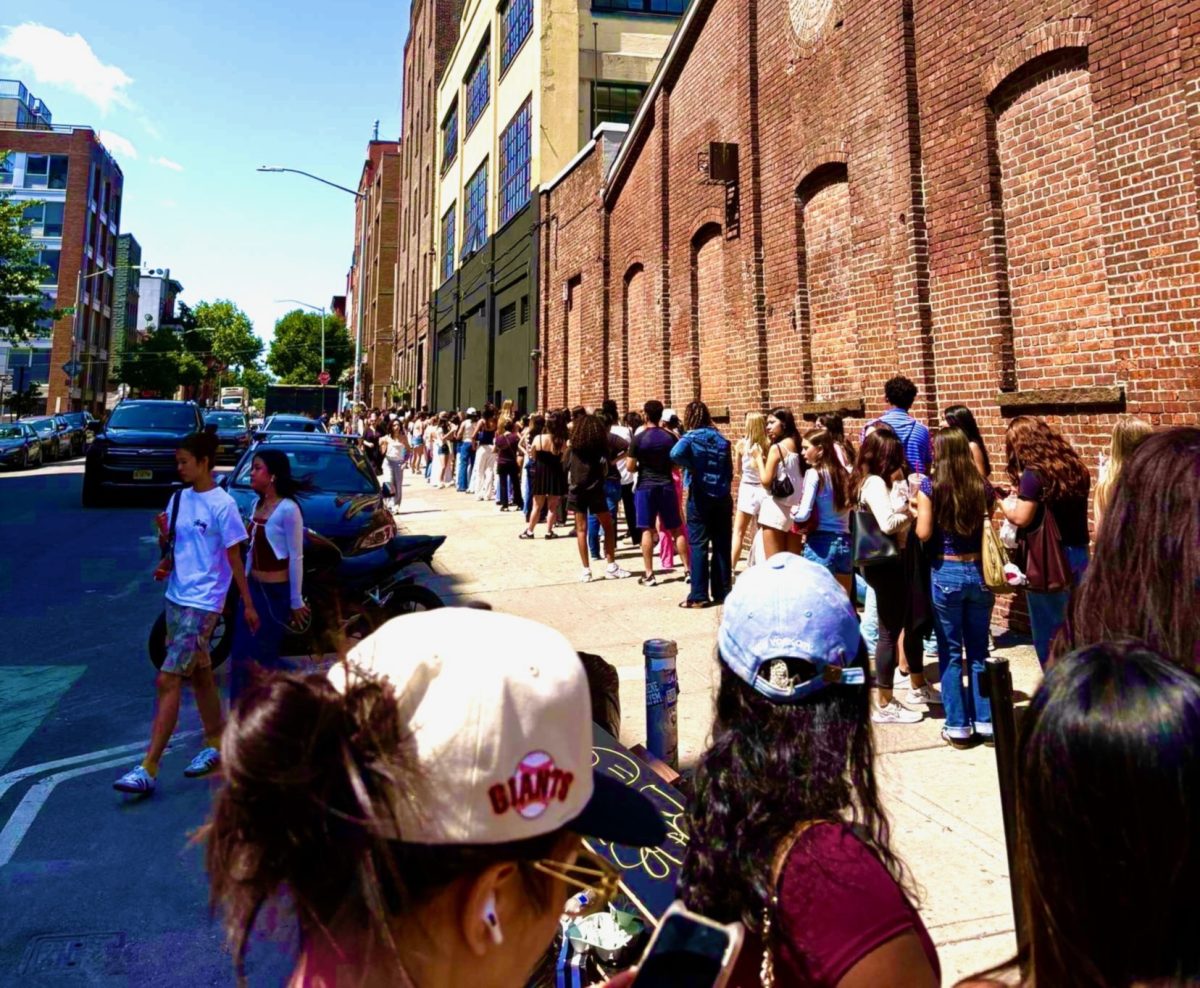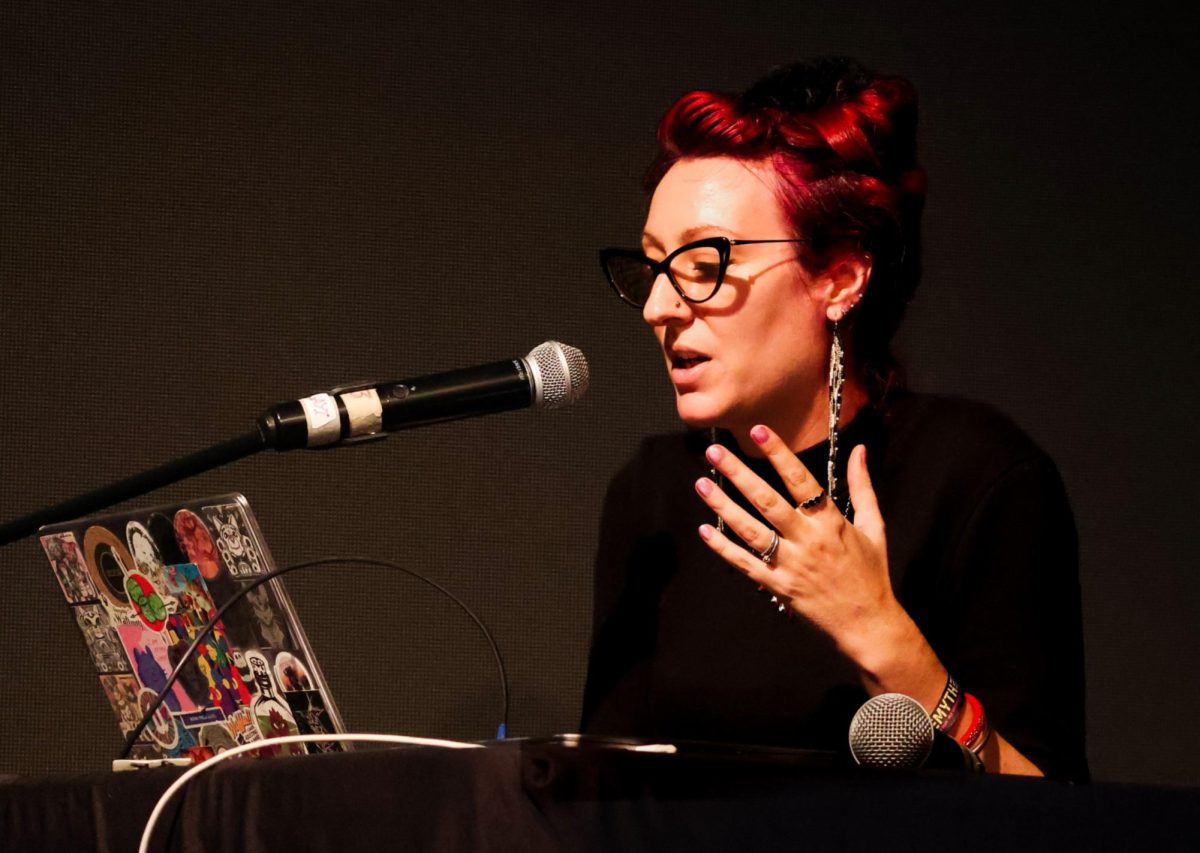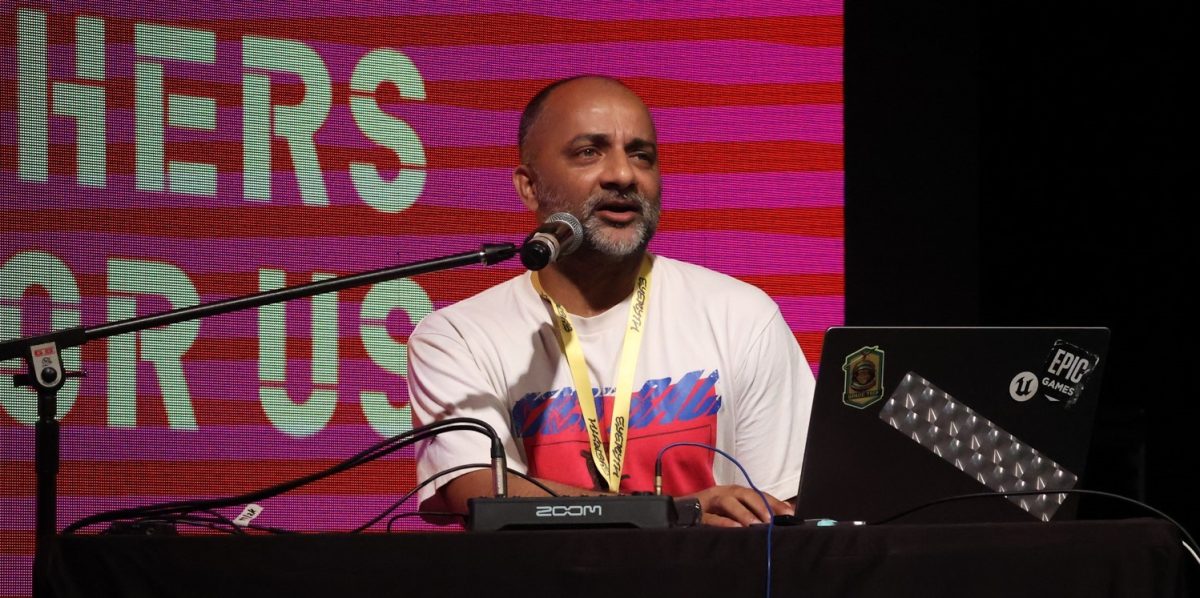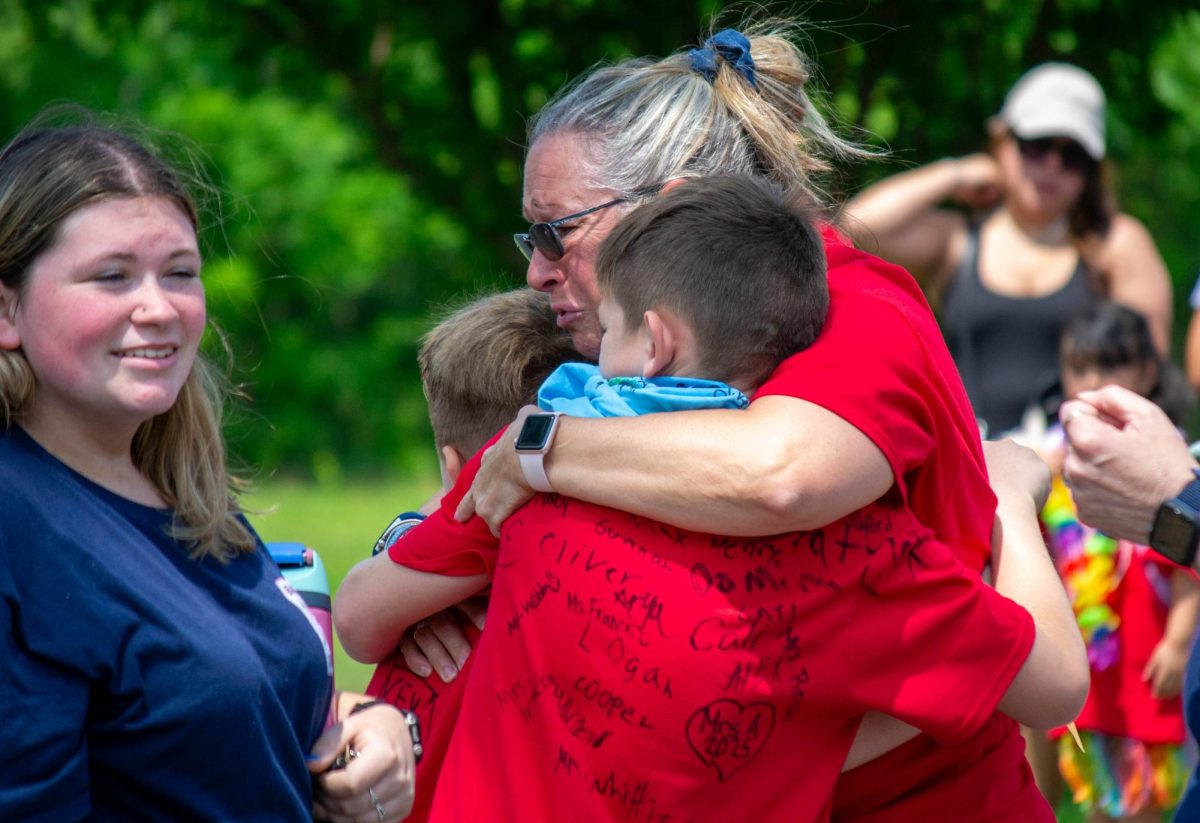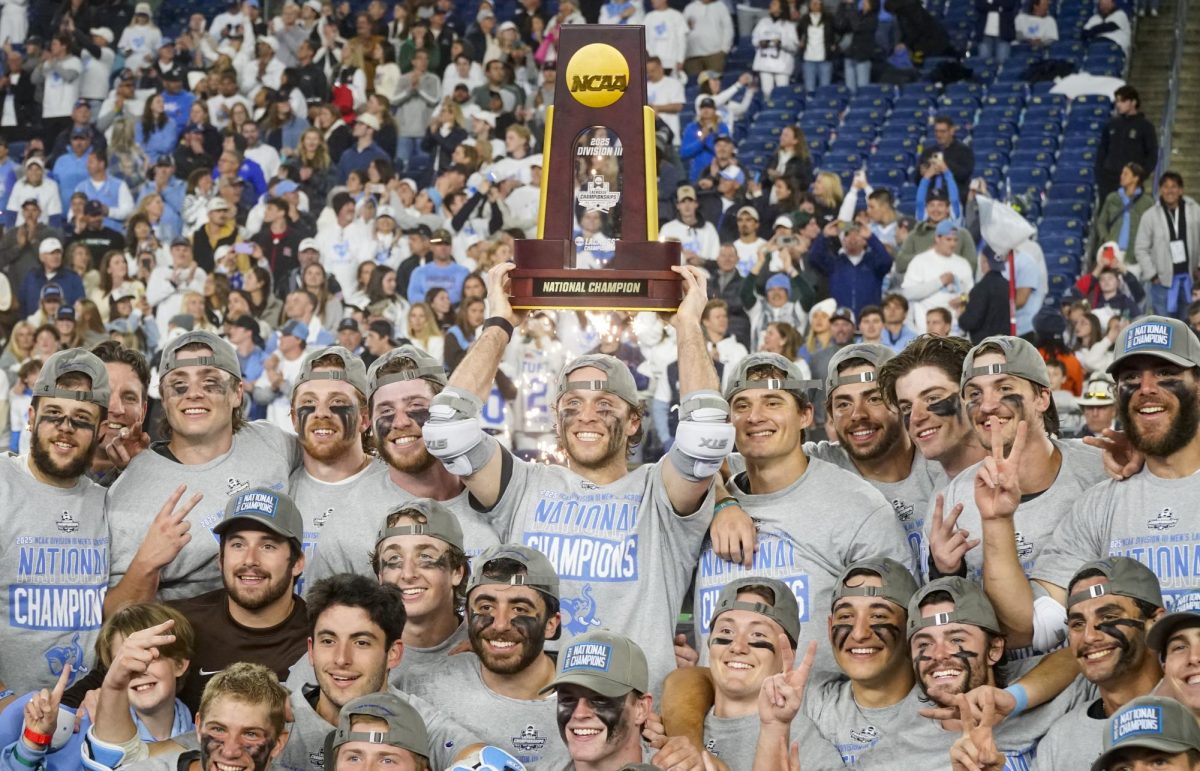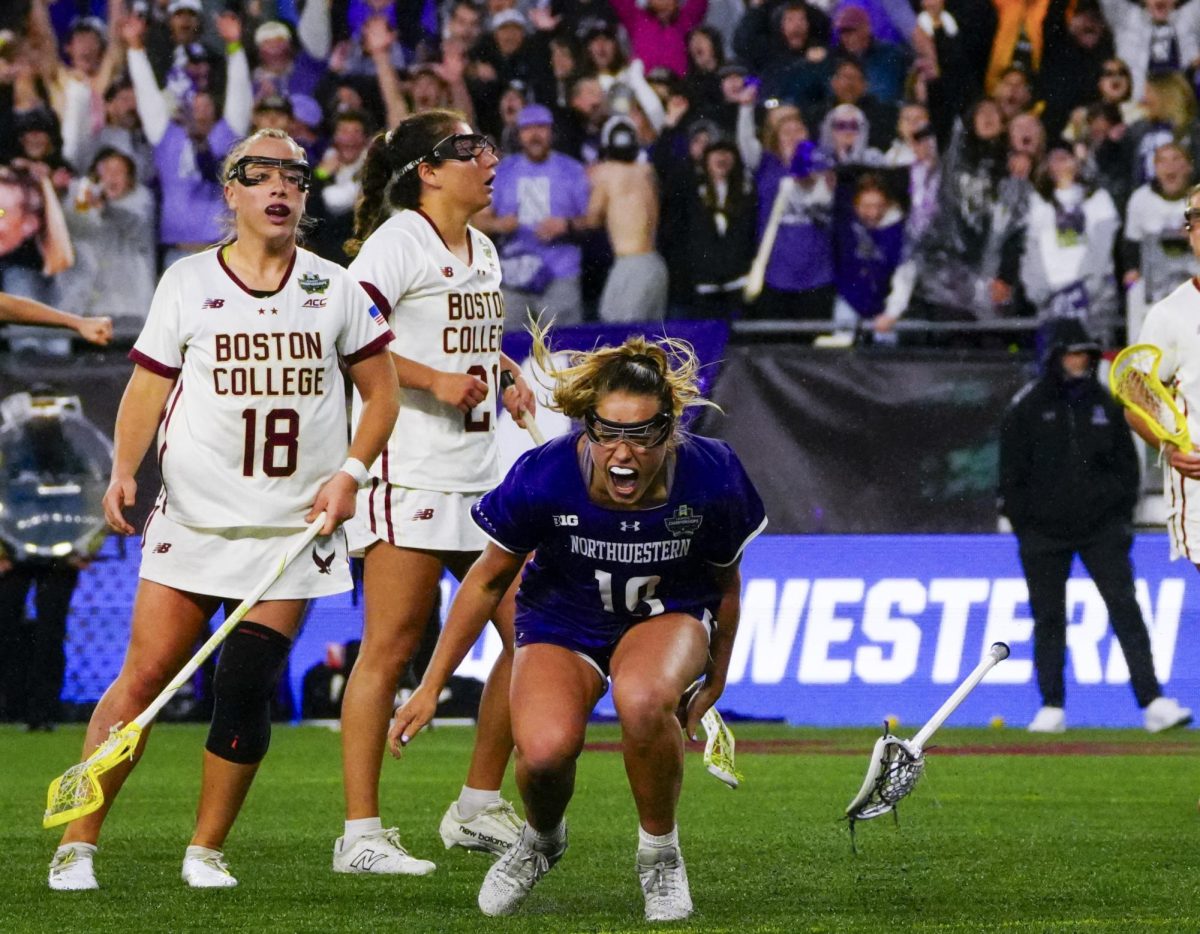Bridging the gap: Laura Shum maintains friendships across 7,808 miles while staying connected at home
Bridget Johnson from the Fusion at Maize (Kan.) Career Academy was a winner in Headliners in Education’s February 2023 contest for Best Story of 2022
Alexis Baty / Maize Career Academy
Senior Laura Shum rides the Metro to school in Hong Kong, a part of her average day. After Shum moved to Maize South her freshman year, her hour long commute to school shortened to around 10 minutes, giving her more time to see her friends before class started.
March 9, 2023
(Bridget Johnson from Maize (Kan.) Career Academy was a winner in Headliners in Education’s February 2023 contest for Best Story of 2022. Read the original story in the Fusion HERE.)
Some long term friendships start at birth. Some start at three or four years. Some start in middle school or high school or college.
Some friendships that are thought to be strong end. People drift and it is harder to stay in touch. People grow up and grow apart.
Some people, like Maize South senior Laura Shum, move 7,808 miles away. 
Where other people struggle with a move to a different state and a one or two hour time difference, a 13 hour time difference creates a completely different issue.
Her friends in Hong Kong that she once considered her family were suddenly hard to reach and she had to learn to adapt to life in Wichita with a completely new set of friends.
Shum moved to Wichita when she was 13 years old and coming into freshman year. It took two years for them to decide to move to Wichita and the Maize district, but her parents ultimately decided it would be the most beneficial option for their daughter.
“I’m dyslexic in Chinese and only in Chinese because it’s like pictures and I just have trouble writing it,” Shum said. “Since my Chinese grades were driving my average down, I will probably not be able to get into a college, so we came to America.”
Wichita allowed the Shum family to give their daughter the education she needed in a city they were familiar with from nearly 13 years prior.
“My parents actually lived in Wichita for a while,” Shum said. “My mom actually attended WSU and so they know kind of how Wichita is. I mean clearly it’s a lot bigger since it was a long time but yeah. So I didn’t really get to choose a choice and where to go; they were like ‘let’s go’ and I’m like ‘fine; okay as long as I can have my education without something driving it down’.”
School in the United States compared to the Hong Kong education system posed many differences to Shum. Her friends often did not live near her home and it was a much longer distance and time to even get to school.
School wasn’t a matter of a boundary line.
“Every school, including your primary school, you test in,” Shum said. “It’s not sectioned based. So basically, you have to go to the school and do an interview first and then if they; wait you do a test first and then they look at your scores and then they decide if they want you to go into an interview. You do an interview and then maybe you’ll get accepted into the school. It’s really common for your home and the school to be extremely far apart and since Hong Kong has such a complex kind of transportation system, sometimes you need to take different buses or different trains to get where you want to go. So it takes around an hour to an hour and a half to get there.”
Public transportation made it easier for Shum and her friends to get around the complex city of Hong Kong. The Metro, the intricate sets of cars and railways, were a part of Shum’s life for 13 years.
“There’s all cars and there’s practically no public transportation; I was just kind of baffled,” Shum said. “I came from Hong Kong which is an international port. It’s part of China but it has its kind of own thing. Prices are ludicrous there because usually you won’t be using gas, you’ll be using the very good system of public transportation and then I got here and I learned that I have to drive and I got really nervous because in Hong Kong, you don’t drive, you take the Metro or you take buses.”
Morning routines for high school students in Hong Kong start much earlier than in the Maize district. Where a lot of students here start their morning only an hour or less before school, Shum had to be ready for the day around two hours early just in order to make it to school on time.
“In the morning, I put on my uniform, we have uniforms, and I just grab my backpack and run out the door and I will go down to a roadside and I get to the bus stop,” Shum said. “Now I take the busand after I get off, like I get off the bus like maybe an hour later and then I take a metro to where I’m supposed to go and then I have to walk from two big malls. Hong Kong has a lot of malls and it’s all connected and stuff. I take the metro and I go there.”

After her bus ride, Shum had the perfect amount of time to stop for breakfast before school. Small bakeries were a part of Shum’s morning for years and gave her the energy to get through a long day at school, from 8 a.m. to 4 p.m.
“I would go to a little other bakery, bread shop again and they sell freshly baked bread, like literally freshly baked, and I would get different ones every so often and I’ll go to the convenience store next to it and I’ll get a carton of milk and I just go to school,” Shum said.
In the Maize district, school is one time friends can talk to each other, whether it is during passing period or during lunch.
In Hong Kong, school is structured a bit differently. Instead of students going to different classrooms for their various studies, it is the teachers that travel.
Students in the same group are together for the whole eight hour day.
The same group of students probably had never known each other before they got put in the same room.
The time after school was Shum’s time to see her friends that she was close to that she did not get to see during school. Boba trips after school was one way she and her friends stayed connected in Hong Kong and continue to do in the United States.
“After school, I would either have basketball practice or this normal day and usually I will be with my friends,” Shum said. “Maybe we’ll go to a boba shop that’s super close and on the way back and then I’ll take a Metro all the way back to a different station and then take a different bus to get back because that bus, like that route, is harder to route when you’re going there.”
Here, most high school students spend most of their time at home or at their friend’s houses. Getting anywhere to do anything is more complicated than getting on the Metro.
Shum’s after school plans now consist of homework at her house instead of boba with her friends.

“You finish a class, you go home,” Shum said “There’s not much to it. You don’t really, there’s not really places that you can just walk to that’s close by and fun. But you just go home or go to the gym or go to the library. Like there’s not many choices.”
Maize South is extremely small compared to schools in Hong Kong; there are a lot fewer students and smaller classes.
Coming from one of the schools in Hong Kong with their towering halls and stairways to Maize South, a flat, U shaped school, posed many challenges for Shum. She did not know anyone coming into the district.
She came into Maize South as a freshman.
Most friend groups are already formed in middle school and, although they can change and accept new people, it is harder to connect with people and truly feel like a part of something.
Students in the Maize South district go to school with each other for 12 years.
Even if they are not friends, students know each other and have a group of friends they know they can always count on.
In Hong Kong, groups are switched every year.
Schools are huge, with an average classroom size of 40 students.
It is practically impossible for students to know everyone in the district like it is here.
Coming to Maize South was just like going into a different grade in Hong Kong; a minor adjustment in her day and another day to make the friends she would be with for the next four years of her life.
“For us, our schools are very big,” Shum said “There’s a lot of people and so what they do is that during the grades they will change the people you are with. So you keep; you always have the need to make new friends and especially when you go from elementary to secondary from my primary. You have to make new friends again and it’s kind of harder.”
Although her friends changed every year, Shum maintained a core group of friends in Hong Kong that she could rely on. Then she moved.
Her friends she thought would be constant in her life went away; thousands of miles away and practically unreachable despite the alternative forms of communication between them. Laughing with cups of boba the only thing between them became nonexistent. Radio waves between them became the only thing keeping them together.
“Because of Covid, I couldn’t go back to see them for like a couple years and I’ve only gone back once to go see them and it sucked,” Shum said. “But we will kind of communicate. There’s like a 13 hour difference and it’s really hard to talk to them, especially when I’m like doing; like they have a lot of school. I have a lot of school. We don’t really have much time to talk. And so we kind of just drift apart some. But when it comes to summer holidays, we’re immediately making plans.
Shum had 13 years of experience growing close to a different group each year.
13 years in Hong Kong.
13 years of memories with her friends.
Her supposedly lifelong friends.
Then she moved to Maize South.
“People here are different,” Shum said. “Like the way people speak, the attitudes of people, just a lot of stuff is different and I was seen as an outsider. There were many times where people were racist to me and sometimes I just choose to ignore it. Sometimes I just told them ‘I’m going to eat your hamster’ and it kind of just affected my impression of it, of America. But then turns out people usually mellow out and start to accept other people as well. It’s great to know that people here, they do change.”
Shum was looking for acceptance. She was looking for guidance in a brand new school. A brand new country.
She had to re-learn her school day routine. She had to re-learn her method of making friends. But before she could do any of that, she had to re-learn certain pieces of her language.
And she had to do all of it before she had a close friend to help her through it.
She had to do it all in front of the eyes of her peers; through their judging glances and laughs as she tried her best to learn and fit in.
“In Hong Kong, we learn British English. We call erasers, rubbers but here you guys call rubbers, condoms. And I didn’t know that. So I dropped my eraser and I went ‘I dropped my rubber’ and then people are; I was just like
‘This thing.’
‘Oh an eraser.’
‘Yeah, what does rubber stand for?’
‘Condoms.’”
Making a close friend was an important step for Shum.
Finding someone she could grow with and teach about her own culture as she learned more about the one she had moved into at 13 years old.
Alexandra Koopmann, a senior at Maize South, was that person for Shum.
“She was new here so we just started, I started talking to her kind of right away,” Koopmann said. “We kind of hit it off there and one of my best friends, we all just hang out you know. Then we got to know each other more after because we had anime club together and we had some other different things we were doing.”
Koopmann later introduced Shum to Janae Simpson, a senior at Maize Complete high school. The three formed a strong bond and have been friends since their freshman year.
“I’ve learned a lot from meeting her,” Simpson said. “We inherently just understand each other just because she’s okay with my flaws and I’m okay with her flaws and if I did something wrong, she’s not afraid to point it out and I think that’s my favorite trait about her.”
Shum found a group of people that was meant for her; her own friend group in a whole new country.
Her own group of new lifelong friends.
Like any group of friends in high school, homework and work and college become the overwhelmingly important things in life; free time is much less and priorities shift. But having a group of friends there through all of it makes bonds easier to maintain through the rest of their lives.
“Lately we’ve all been busy,” Shum said. “I’ve been really busy. I haven’t hung out with them for a long time but we sometimes text to, you know, say hi to each other.”
Shum has had years of working hard to maintain strong relationships.

Years of practice with physical distance straining relationships.
Through high school, she has had to learn how to deal with barriers in her friendships and had to learn how to make friends in a completely different place. She has had to learn different ways to communicate with her friends and learn how to balance her advanced classes with her relationships.
Going into college, Shum hopes to stay connected with her current friends even though they are going to different schools in different places.
Her past experience has made her an expert at staying connected with her friends.
Her past experiences have set her up for lifelong friendships.
Her past experiences have made her good at communication.
“How do you make friends if you don’t really tell each other anything,” Shum said. “Those are kind of more superficial friendships. Communication, just being there for when they need it, stuff like that.”
–Originally published April 25, 2022–




